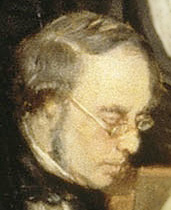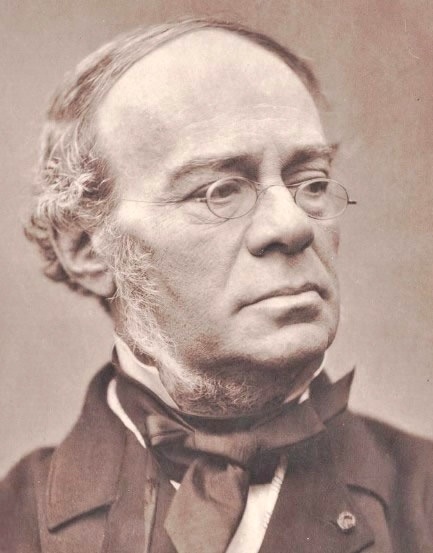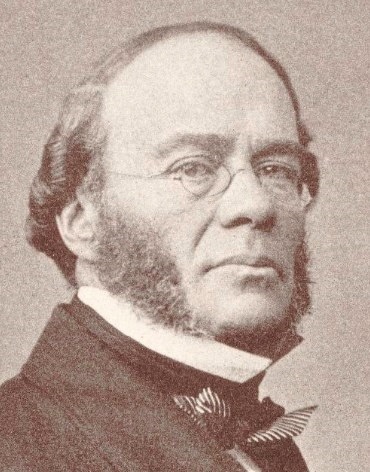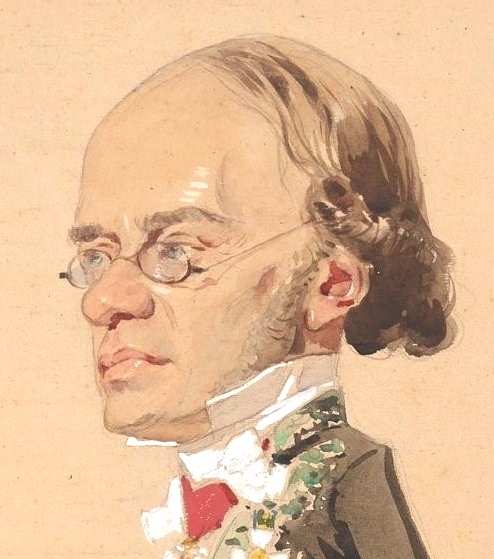Fromental Halévy (1799–1862), Composer
1st image: Soirée; 2nd: photo by Étienne Carjat (1860); 3rd: photo by Nadar (1860); 4th: caricature by Eugène Giraud drawn February 01, 1861 at Nieuwerkerke's soirée.
Soft-spoken and generous, Fromental Halévy was —alongside Meyerbeer76 —one of the most celebrated composers of early French Grand opera. His librettos were frequently penned by his close friend Scribe74, though Halévy, described by the press as a “surgeon of poetry,” often adapted them to his own artistic vision.
His 1835 opera La Juive (The Jewess) brought him international fame. Set in the 15th century, the tragic tale follows Rachel —a cardinal’s lost daughter, saved and raised as a Jew— who falls in love with the Christian prince Léopold. Their doomed romance unravels as the truth of Rachel’s origins is revealed, culminating in her horrific death in the final act. That same year, Liszt50b composed the brilliant (but not necessarily pretty) Réminiscences de La Juive, inspired by Halévy’s masterpiece.
With over five hundred performances staged throughout the 19th century, La Juive became a landmark of operatic repertoire. In the 20th century, its leading roles were famously sung by tenors such as Enrico Caruso.
Halévy played a key role in shaping the careers of Gounod70b, Saint-Saëns, and his protégé Bizet—who would later marry Halévy’s daughter, Geneviève.
A tireless composer, Halévy completed thirty-three operas in thirty years. Despite his demanding schedule, he was a fixture in Parisian high society, attending soirées with his sophisticated wife Léonie —twenty years his junior. The couple regularly mingled with Auber56, Augier53, and Mérimée54. Their frequent guest, Eugène Delacroix10, once remarked that they were too cosmopolitan to live in the countryside, joking:
“They needed to attend a party every evening.”
In July 1854, Halévy was appointed perpetual secretary of the Academy of Fine Arts—the first composer to hold this prestigious role, likely contributing to his frequent invitations to Count de Nieuwerkerke’s16 soirées.
Halévy’s relentless work ethic took its toll on Léonie, leaving her isolated and depressed. She sought treatment at Dr. Blanc’s renowned mental health institute in Passy (where surgeon Jobert de Lamballe01 also spent his final years).
Upon her recovery, she immersed herself in art collecting—though, according to Delacroix, her eclectic mix of works by Ingres, Rubens, Vernet, watercolors by Princess Mathilde, and marble busts created a “suffocating bric-a-brac.”
Halévy, however, found joy in his wife’s pursuits. Known for his rare ability to concentrate and compose anywhere, he continued to work diligently. Yet by the late 1850s, public taste had shifted toward contemporary composers like Bizet, Gounod, and Wagner, and Halévy’s newer operas faced critical reception.
Advised by his physician to spend the winter in Nice, Halévy passed away there on March 17, 1862.



